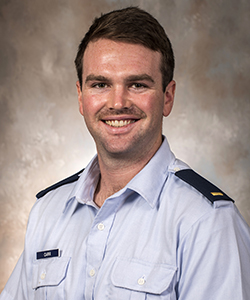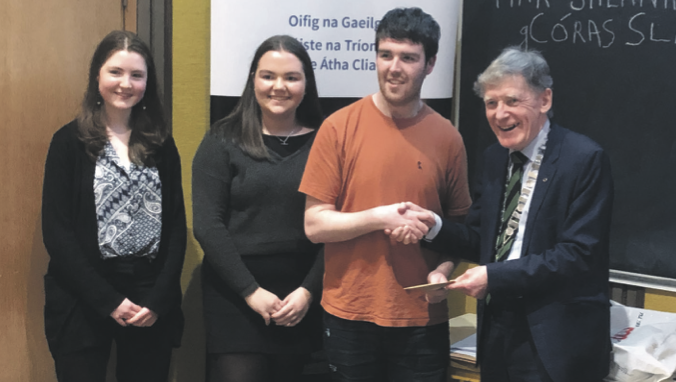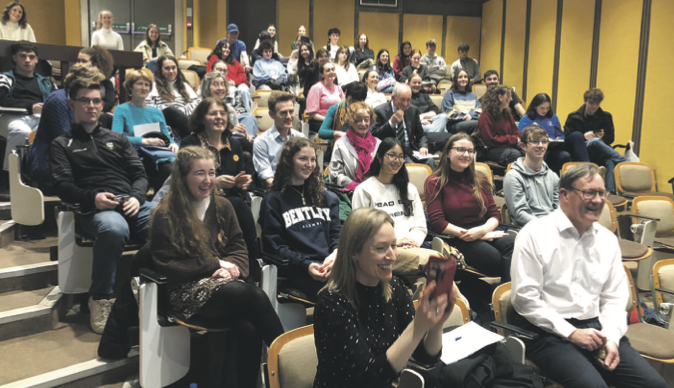A new study outlines challenges facing Irish-speaking doctors and the provision of healthcare through the language. David Lynch reports
Irish-speaking doctors have raised the identification of Gaeilgeoirí patients and the “strong English dominance in healthcare” in a new study.
The paper, ‘Experiences and perceptions of physicians utilising the Irish language’, appeared in the April issue of the Irish Medical Journal (IMJ).
The paper’s aim was to “elucidate perceptions held by physicians with Irish language skills or in Gaeltacht practice of the practicality and level of importance of healthcare provision” through Irish.
The study involved interviews with doctors recruited through Acadamh na Lianna, the association of Irish-speaking medical doctors (see panel). It found that better health records or registries of the language skills of patients and physicians “would likely decrease language discordance in healthcare interactions”.
The IMJ paper also highlighted recent surveys that reveal speech and language therapists often fail to assess their paediatric bilingual Irish-English patients’ Irish-language skills comprehensively, “which may lead to either missed diagnoses or false positives and unnecessary treatment.”
Psychiatry and psychology “represent other obvious fields where a lack of Irish-language services could, at least hypothetically, lead to patient harm”.
The paper’s lead author, Second Lieutenant (2d Lt) Kyle Carr, is a medical student in the United States Air Force studying at the Uniformed Services University of the Health Sciences (USUHS), F Edward Hébert School of Medicine in Bethesda, US.

2d Lt Carr graduated from the University of Galway in 2022 with a Master’s degree in applied multilingualism. Dr Stanislava Antonijevic-Elliott was his thesis advisor and co-author of the IMJ paper. “I do speak a fair amount of Irish, which I learned mostly while in Galway,” 2d Lt Carr told this newspaper.
Those interviewed for the IMJ paper raised a lack of means to identify other Irish-speaking doctors as a particular challenge.
2d Lt Carr said a centralised list of doctors who have the skill and desire to practise in Irish could help, and it would “probably be appropriate” for one of the “physician professional organisations” to do this.
“Many of the interviewees spoke to the fact that the way the system works, a patient can choose their primary care provider, including one who speaks Irish if they so desire,” he told the Medical Independent (MI). “But when referring to a consultant, there is nearly no way to know whether they will be able to provide care in Irish, unless the GP personally knows the consultant.”
“So having a centralised list could help GPs direct those referrals for Irish-speaking patients, at least in less acute situations.”
He added that if central listings of Irish-speaking GPs were made available to the public, it “wouldn’t hurt access either”.
“That could help those young Irish-speaking doctors still building their practice to build a practice where the Irish language is used consistently. In the study, it became clear that even in the Gaeltacht, access to an Irish-speaking provider is no guarantee.”
Electronic
The IMJ paper stated that updating software to accommodate both Irish and anglicised names and noting patient Irish language proficiency within electronic health records (EHR) “may solve headaches and improve patient-provider interactions”.
With the HSE currently working towards a national EHR system, could this provide an opportunity for better Irish language services?
“Working with a system-wide EHR (MHS Genesis) daily, I can tell you that is a huge boon, and having that sort of shared access to information certainly improves patient care,” 2d Lt Carr said.
He added that “language preferences” as well as making a record searchable by multiple names “seems like it would be fairly simple to incorporate into a new EHR”.
“This could go a long way toward increasing Irish interactions in healthcare, as a quick chart review would let doctors know to offer Irish language services to individual patients before visits even begin.”
I think it would be relatively simple to offer Teanga an Leighis at every medical school in Ireland
Education
The paper found that it was “highly desired” to develop better training pathways for those doctors interested in practising through Irish. It noted the importance of reviewing Teanga an Leighis.
Teanga an Leighis is a special study module (SSM) that medical students undertook in the second year of their studies in University of Galway. The module was designed to improve medical students’ language skills when communicating with patients through Irish.
“Over the course of the module, students spent weekends in a nursing home in a Gaeltacht area,” a University of Galway spokesperson told MI, “where they focused on taking the patient’s history, pain matters, consent, and medical treatment, and were required to write a reflective essay once the module was completed.”
All SSMs, including Teanga an Leighis, were suspended during the Covid-19 pandemic to prioritise the delivery of core medical modules and clinical skills.
The spokesperson said University of Galway is reviewing its medical curriculum and there are plans for Teanga an Leighis to be reintroduced in the revised programme. This would commence in the academic year 2025/2026, “under the curricular theme – ‘The patient and their journey in the healthcare system’.”
From the US perspective, 2d Lt Carr said that many medical schools have a medical Spanish curriculum which functions “relatively well, even though we offer fewer years of formal second language education here than the mandated years of Irish education in the Republic of Ireland”.
“I think it would be relatively simple to offer Teanga an Leighis at every medical school in Ireland.”
He said short of this, making the Teanga an Leighis materials and curriculum publicly available could only help Irish language healthcare.
“If schools do not take it upon themselves to develop an Irish curriculum, I would implore students to do it themselves – we have a fully student-developed and run medical Spanish curriculum at USUHS that I helped teach to my classmates and many were thankful for it.”
He added that “opportunities are needed to use Irish in clinical practice throughout doctors’ education”.
“Opportunities for clinical education in the Gaeltacht should probably be preferentially awarded to those who have a desire to practise medicine through Irish.”
Ambition
The HSE launched an Irish language plan in 2019. However, due to the pandemic and new legislation, this initiative was effectively put on hold within months of its publication.
A HSE spokesperson said its Irish Language Strategy 2019-2023 expressed “significant ambition” and set out a range of actions to “improve our provision of services to Irish speakers, both by right and as a support to the health and wellbeing of Irish speakers”.
During the same period, the Official Languages Act 2021 (OLA) came into force. This brought about significant change in the duties of public bodies, including the HSE, “and has provided the HSE with a new roadmap for providing health services through Irish.”
Public sector organisations, including the HSE, “are rolling out a new framework of language duties and services” aimed at ensuring Irish speakers can access services in both official languages.
As part of this, the HSE has assigned a senior manager to oversee and report on the implementation of the OLA in the HSE.
The spokesperson said that HSE public information campaigns on TV, radio, and other channels are now available in both Irish and English.
Social media
One-in-five social media posts from HSE accounts are in Irish and it has a dedicated Irish language Facebook page.
“Queries received by the HSE in writing or to our social media accounts are responded to in Irish and HSELive, our contact centre, has Irish-speaking call takers available.”
HSE online application systems for services, such as booking a vaccine, are provided in Irish and English.
An Irish language learning hub has also been created within the HSE’s online training website, with open access to all healthcare staff, while recruitment teams are advertising posts in Irish and English.
In terms of Irish-speaking healthcare staff, or care provided through Irish, the data “is not currently available”, the spokesperson said. The HSE recently participated in a survey on the Irish language capacity of the public sector, addressing various corporate matters such as the recruitment and training of personnel proficient in Irish and the provision of public services through the medium of Irish.
This research was undertaken by the Irish Language Services Advisory Committee through the University of Galway as part of the development of the first national plan for Irish-language public services under the Official Languages Acts 2003-2021.
“In excess of 4,000 HSE staff took part in this survey and we look forward to seeing the results of the research upon publication of the national plan later this year to enable and enhance our planning for future services.”
The HSE is also partnering with Údarás na Gaeltachta to provide scholarships for fluent Irish-speaking healthcare students from Gaeltacht areas. A staff information programme is being planned for summer 2024 to increase knowledge among HSE staff and managers of their duties under the OLA.
‘Experiences and perceptions of physicians utilising the Irish language’ can be accessed at: https://imj.ie/april-2024-vol-117-no-4/.


‘Renaissance’ for Acadamh na Lianna as membership grows
Acadamh na Lianna was founded in 1968, and is the oldest Irish-language professional association, with the exception of Cumann na Sagart (for priests), which was founded in 1916. Overwhelmingly, the membership is comprised of doctors, but other healthcare professionals are also welcomed.
The Medical Independent asked Dr Colm Ó Sé, Rúnaí Oinigh (Honorary Secretary) of Acadamh na Lianna, about the role the association plays for Irish-speaking doctors in the modern era.
What is the main aim of Acadamh na Lianna?
The aims are to foster friendship while promoting the Irish language both for social intercourse and as a technical language. Regarding medical terminology, our current President, Prof J B Walsh, is a member of the Coiste Téarmaíochta (the official body for devising terminology).
What kind of activities does Acadamh na Lianna get involved in? How active is the membership?
The most important activity is the academic meetings – between two and four annually, subject matter including medical topics of course, but also history and folklore as they relate to medicine, as well as the Irish language. Therefore, usually the meetings are aimed at a medical audience, but not always. For example, we will be hosting a meeting again this year as part of the Dublin Festival of History (the topic this year being doctors and Conradh na Gaeilge in the early 20th Century).
There is agreement also to hold a joint meeting with the newly-formed Irish-language Lawyers’ Association (Cumann Barra na Gaeilge) to present papers that would be of mutual interest.
For decades, Acadamh na Lianna has sponsored a prize for medical students in the University of Galway, who do a module in Irish as part of their undergraduate teaching. More recently, we have inaugurated and sponsored an intervarsity debate for medical students, which we try to coordinate with Seachtain na Gaeilge. This has been particularly rewarding.
After meetings there is usually a tour of some sort – of a cultural or historic site, or of a medical facility, and so on. In between meetings, we have a Ciorcal Comhrá (conversation circle) on Zoom, three-to-four times a year. There is also a very active WhatsApp group.
Has there been an increase in interest/activity among Irish-speaking doctors in recent years, or has there been a steady decline?
This question is well-asked. Five-to-10 years ago my answer would have been different, but I am happy to say that the Acadamh is enjoying a renaissance, with increased membership and activities.
Of particular importance is attracting students and young doctors, and again, I am happy to report that we are enjoying moderate success there. As with any organisation, membership (about 130) is split between those who always attend, those who often attend, and those who never attend. Unfortunately, the split is not even!
What is the best way for an interested doctor to get involved with Acadamh na Lianna?
Our email address is acadamhnalianna1968@gmail.com, and there is a Twitter/X account @acadamhnalianna. But the email is undoubtedly the better way to make contact with us.













Leave a Reply
You must be logged in to post a comment.